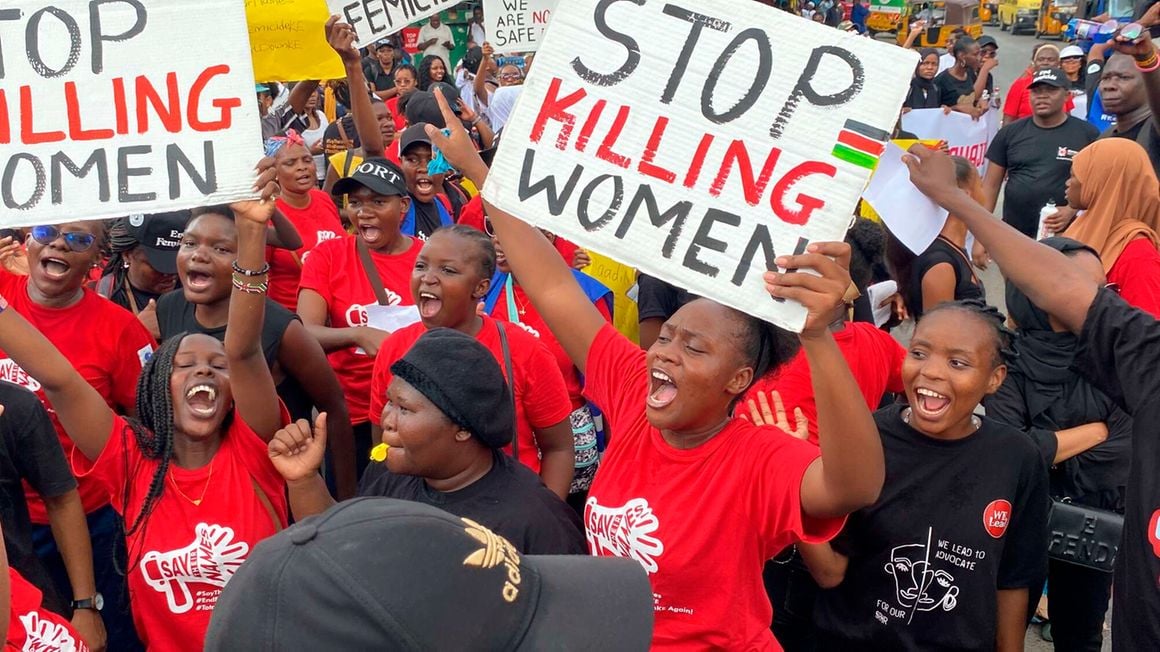Imagine a world in which no girl or woman ever has to live in fear of experiencing sexual harm. A world in which rape and other forms of gender-based violence such as femicide, female genital mutilation (FGM), child marriage, trafficking, and psychological abuse, are not wielded as weapons against girls and women.
Instances such as the recent murders, including the gruesome killing of a 24-year-old Kenyan woman in South B and the ghastly murder of a 20-year-old girl in Kasarani, both in Nairobi, among other femicide incidents, underscore a deeply concerning pattern of intimate partner violence.
These distressing events evoke parallels with numerous femicide cases that have occurred in the country, highlighting the urgent need for comprehensive efforts to address and prevent such instances of gender-based violence.
According to the World Health Organisation (WHO), one in three women globally experiences either intimate partner violence or non-partner sexual violence during their lifetime. That’s an estimated 736 million women being subjected to various forms of gender-based violence, a number that does not include the one in five persons in employment (743 million people, the majority of them women) who have experienced at least one form of violence and harassment at work during their working life.
According to a UN Women report, in 2022, Africa recorded the largest absolute number of female intimate partner and family-related killings with an estimated 20,000 victims.
The devastating wars in Ethiopia, Sudan and the Democratic Republic of Congo (DRC) continue to inflict profound and heartbreaking consequences on women and girls, exacerbating all forms of gender-based violence, including femicide and rape to an alarming rate.
In the Tibray region of Ethiopia where conflict has intensified, reports indicate a surge in sexual violence.
In the DRC, ongoing armed conflict has created an environment where sexual violence is routinely used as a weapon of war.
According to UNHCR, the disturbing allegations of severe incidents of sexual violence targeting civilians, including women and girls, notably impacting internally displaced persons (IDPs) escaping conflict in the eastern DRC, are deeply troubling and demand urgent intervention.
Similarly, in Sudan, just months after violence ignited between the Rapid Support Forces (RSF) and Sudanese Armed Forces, reports indicate the “brutal and widespread use of rape and… sexual violence” by the RSF, especially as a tool of the “targeted ethnic violence” unfolding in Darfur.
Femicide’s magnitude demands that we confront not just the perpetrators, but also the failures in leadership that allow the dehumanisation of women through physical, sexual and emotional abuse.
The female body and mind cannot and must not be allowed to become a battleground. Failure to protect women from all forms of violence is both a failure in leadership and a profound violation of women’s agency and human rights. It is a stain on our collective conscience, and we cannot afford to turn a blind eye.
Combatting femicide against women and girls requires us to hold ourselves and our leaders accountable for both actions and inaction. We have a responsibility to current and future generations of girls and women to speak up in unity and solidarity; to build a strong movement of women led by women to address drivers of gender-based violence – including harmful cultural practices and unequal access to healthcare, education, and employment opportunities – to end discrimination in all its forms.
We must remember the spirit of the 1979 Convention on the Elimination of All Forms of Discrimination against Women (CEDAW), which binds state parties to take all appropriate measures, including legislation and temporary special measures so that women can enjoy all their rights and fundamental freedoms.
We can no longer sit by in silence and hope for peace amid a raging war against the female body and mind – we must act and do so swiftly. By amplifying the voices of those who have been marginalised and shattering the silence that has allowed these injustices to persist, we can begin to form pathways to sustainable resolutions that will create a safer world for girls and women.
It is time to hold leaders to account and demand action for all girls and women living at risk of femicide or navigating the reality of surviving it. We must call out the inadequacies, the complacency, and the lack of accountability that allow girls and women to be humiliated and terrorised using violence and harassment as an instrument of subjugation.
As we honour the survivors of femicide, gender-based violence, and sexual harassment and commemorate its victims, we must use our voices to demand accountability, and tangible and sustained action from those in positions of leadership. We refuse to be silenced; to be made complicit in the suffering of millions of girls and women around the world every day.
Dr Norah Obudho is Health Integration and East Africa Director, and Lizz Ntonjira is Communication and Engagement Director at WomenLift Health.
This article was first published on The East African.


